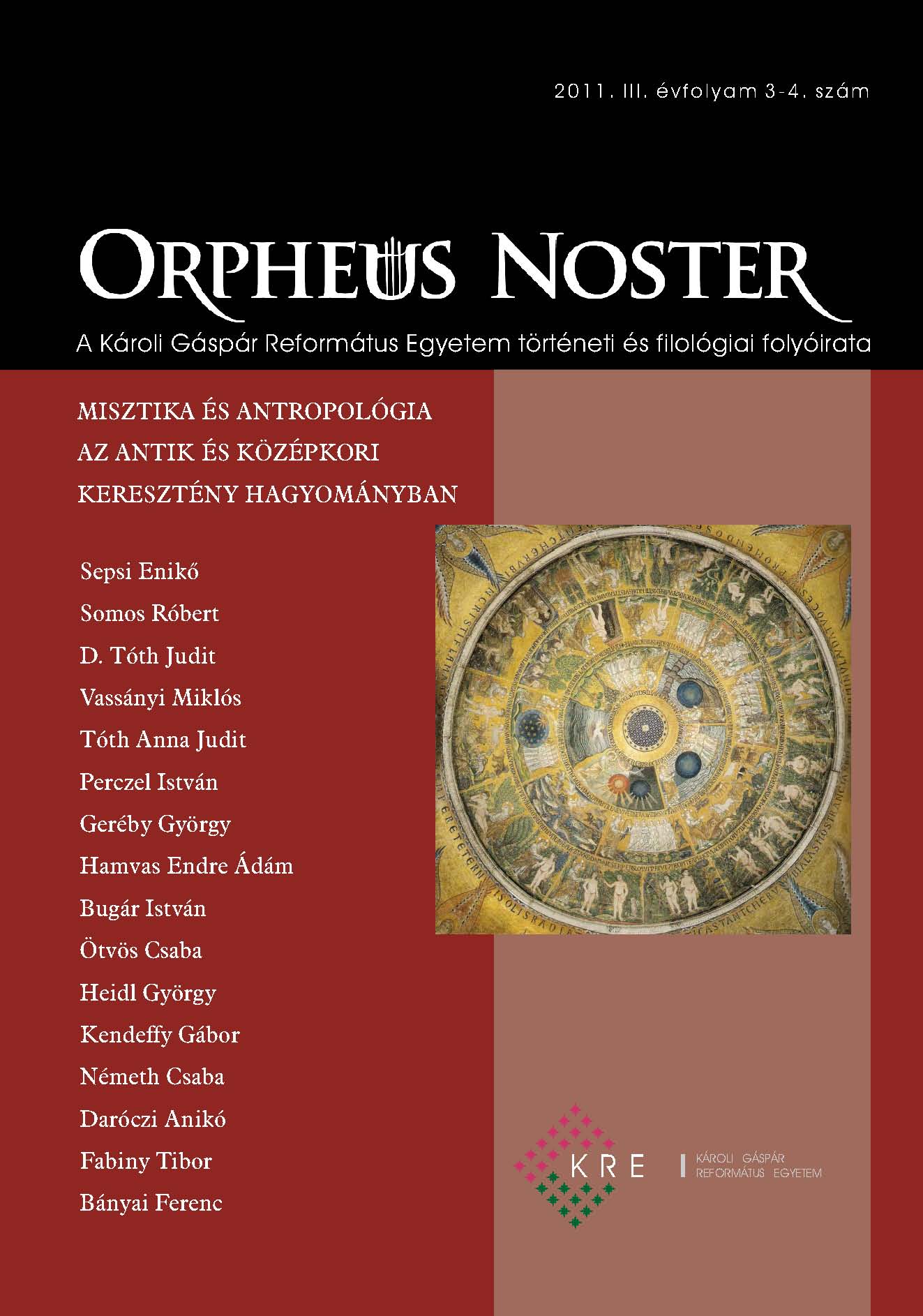Ágoston misztikája
Augustine’s Mysticism
Author(s): Gábor KendeffySubject(s): Christian Theology and Religion, Theology and Religion
Published by: Károli Gáspár Református Egyetem
Keywords: mysticism and theology; Augustine of Hippo; Augustine's Confessionis;
Summary/Abstract: If the term ‘mysticism’ is to be preserved for doctrines on the union with, or the direct experience of, God, experience separate from every kind of conceptual thinking, Augustine can hardly be considered as a mystic thinker. Nevertheless, it is not merely a hazard that the thought of the bishop of Hippo became one of the most important reference points for medieval mysticism. Regarding the three famous autobiographical accounts of ascent in the Confessions (7, 10, 16-17; 7, 17, 23; 9, 10, 24-26), an analysis can show that the momentary insight into the divine essence is always described as a culminating point of an epistemologically motivated meditation, advancing from sense perception toward the apprehension of incorporeal beings. It is also worth observing that each of the three ascents reported – even the first two, located by the author, in terms of autobiography, in a period of “desperatio” – implies, beside the failure, the feature of hope, too. This feature becomes even more obvious if we compare these accounts with the program of ascension toward the contemplation of God sketched in the dialogue On the Measure of the Soul (387/8). Whereas this writing, finished two years after the conversion, threatens those attempting to contemplate God without due preparation with the perspective of getting completely discouraged about such a contemplation, the I appearing in the Confessions keeps trying to elevate himself to the sight of the divine light. The ascension scenes of the Confessions are worth comparing with some more theoretical Augustinian texts, devoid of any autobiographical or personal bearing (Confessions 10, 25-27; On Free Choice 2, 16, 42; On True Religion 34, 64–35, 65; Treatises on the Gospel of John 20, 11-12). In these passages epistemological and ontological reflections lead to the same culminating point as in the elevations described in the Confessions: a non-conceptual, momentary and fragmentary knowledge of God, experienced by the Self “elevated above himself.” Pastoral works of the Church Father also offer several passages parallel to the accounts of ascension in the Confessions (Commentaries on the Psalms 26, 2; 30, 3; 37, 12; 99, 6; Sermons 52, 6, 16). These texts, dealing with the phenomenon of extasis especially in relation to Psalms 31 and 42, present the failure of the ascension as an integral part of the life of the believer, rather than as a catastrophe or breakdown. That is to say, the program of appropriately seeking God includes an incessant sequence of necessarily unsuccessful attempts to contemplate the divine essence.
Journal: Orpheus Noster. A KRE Eszme-, Kultúr-, és Vallástörténeti Folyóirata
- Issue Year: III/2011
- Issue No: 3-4
- Page Range: 130-142
- Page Count: 13
- Language: Hungarian

